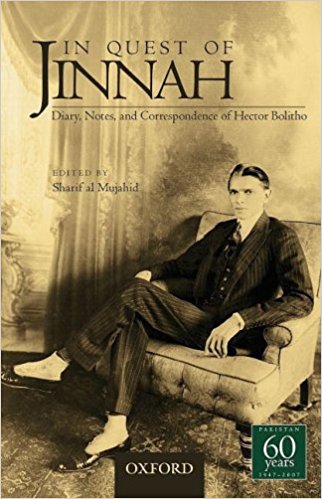Muhammad Ali Jinnah was the father of Pakistan and had become a cult figure for most Pakistanis and therefore, it was no easy job for anyone to write an objective biography. This was illustrated by the ban imposed in the eighties on the biography, Jinnah of Pakistan, written by Stanley Wolpert in 1984 which did not conform to the official image. Till the early fifties most attempts to write about Jinnah were hagiographies with few exceptions. The earliest known work on Jinnah was the one written by India’s poetess Sarojini Naidu which was almost a poetic eulogy of the young Jinnah when he was an active and bright leader of the Indian National Congress and the national movement. Soon after the emergence of the new state in 1947 there were demands for a detailed life story of the founder of the country. Jinnah was hardly known in the West and therefore the Government of Pakistan decided to commission the writing of his biography in 1951.
The person chosen was one Hector Bolitho, a writer belonging to New Zealand who had written extensively on various subjects. His name had been recommended by someone in early 1951 to Liaquat Ali Khan, the first Prime Minister of Pakistan. It was stipulated that the book would be mainly meant for western readers. Hector Bolitho was expected according to the agreement to work under the supervision of Colonel Majeed Malik, the Principal Information Officer, Government of Pakistan, who incidentally was the first Indian to be appointed a full Colonel in the British Indian Army.

